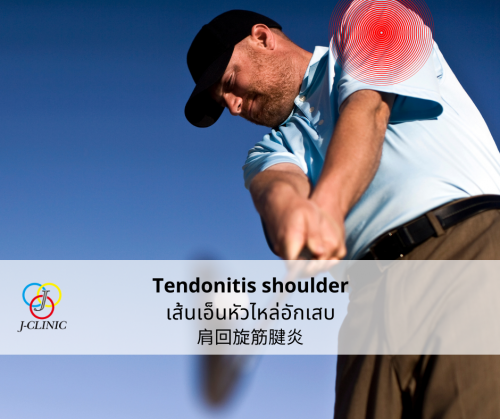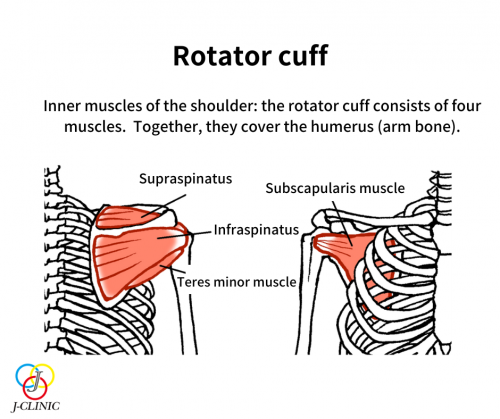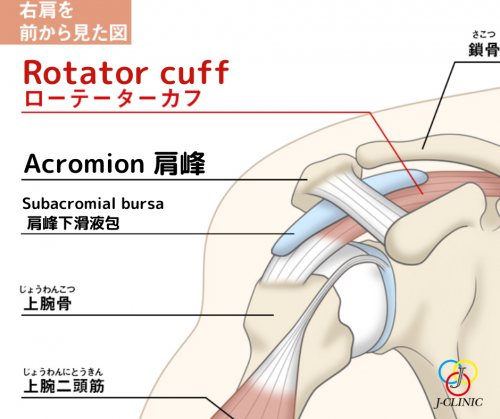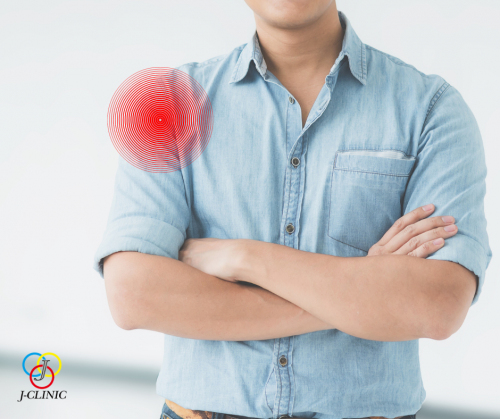Hello, this is Sato from J-CLINIC, a physiotherapy and acupuncture clinic in Bangkok.
Here in Bangkok, a lot of people enjoy golfing – but many golfers suffer from shoulder tendonitis. In this article, I’ll talk about shoulder tendonitis and how you can get it treated.
What is shoulder tendonitis?
Shoulder tendonitis is an inflammation of the rotator cuff. It’s caused when fatigue builds up in your shoulder from repetitive lifting and rotating.
If you don’t treat the inflammation, the rotator cuff muscles will keep rubbing against the humerus (the long arm bone) and wear down from the friction. You can then end up injuring or tearing your shoulder rotator cuff.
Shoulder tendonitis is caused by overuse of the shoulder
You can get shoulder tendonitis if you overuse your shoulder. Overuse can come from repetitive movements where you raise your arm above your head, such as golf swings, weightlifting, tennis serves and volleyball spikes.
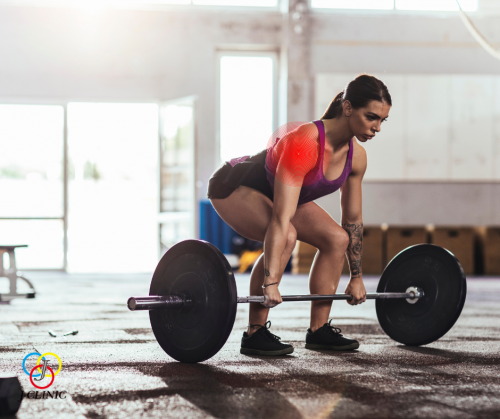
Common symptoms of shoulder tendonitis
If you have shoulder tendonitis, you may experience pain in the shoulder when you:
- extend the arm in the finish of a golf swing
- lift your shoulder to take off a shirt
- work on a computer
- fold your arms
Our treatments for shoulder tendonitis treated
Manual treatment
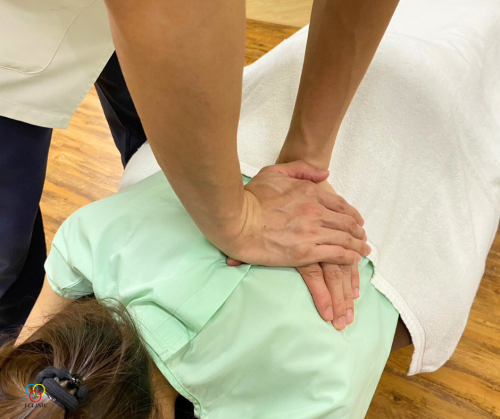
Motion and manipulation
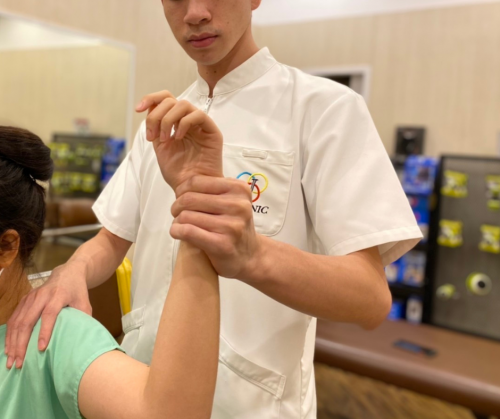
Ultrasound and high voltage therapy
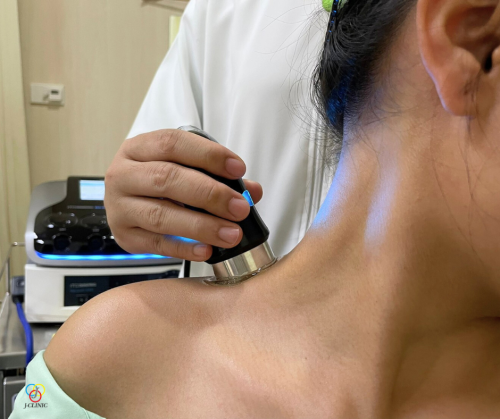
Acupuncture
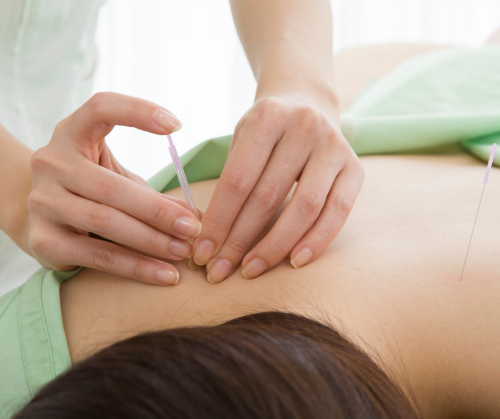
Taping therapy
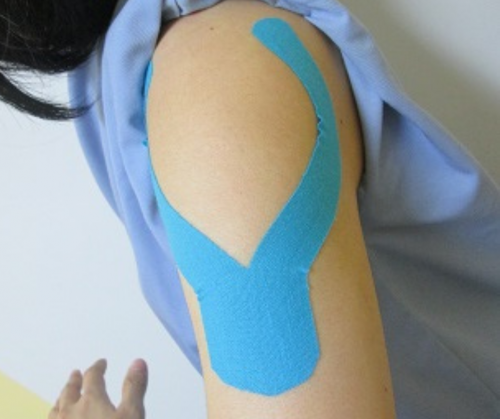
Poultice
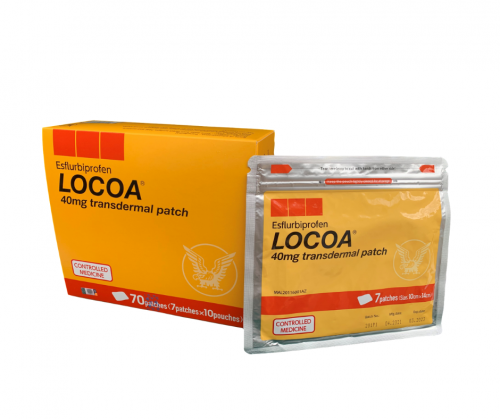
Training and self-care guidance
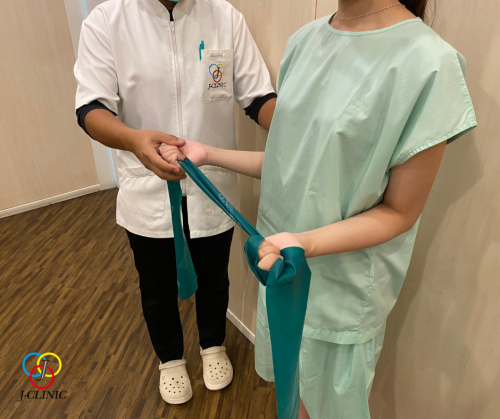
Important to do self-care exercises at home once your symptoms have improved.
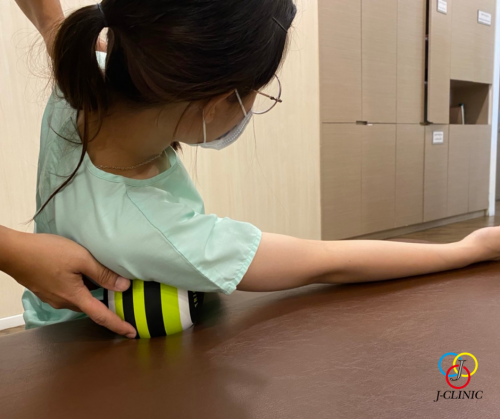
TheraBands and massage balls are available at our clinic.
If you suffer from shoulder tendonitis in Bangkok, we invite you to get in touch with us by phone, email, Facebook.
If you suffer from a biceps tendinitis in Bangkok, we invite you to contact us by phone, contact form, or Facebook.
📞For Booking
- Phrom Phong: 097-257-3577
- Thonglor: 084-424-1299
- Ekkamai: 097-245-7863
Treatments for shoulder pains
- Shoulder muscle sprain
- Shoulder rotator cuff injuries
- Biceps tendinitis
- shoulder impingement syndrome
- Shoulder tendonitis
Past cases
- Physical therapy for ballet dancers
- Common problems for ballet dancers: Hip and knee joint pain
- Sprained playing soccer! Ligament damage
- What causes herniated discs and back pain?
- Post-surgery rehabilitation at J-CLINIC
- Treating sciatica
- Treating frozen shoulder
- Physical therapy for kendo practitioners
- Treating weight-training injuries
- Your stiff shoulders and headaches are caused by uneven shoulder blades?
What physical pains can be treated at J-CLINIC?
- Physical therapylower back pain, stiff shoulders, sciatica, headaches, knee pain, sprains, pulled muscles, whiplash, post-fracture rehabilitation and injuries from sports and accidents.
- Acupuncture treatmentPMS, irregular periods, insomnia, orthopedic diseases, headache, cosmetic acupuncture, eye strain, gastrointestinal problems.
Our branches in Sukhumvit road
- Phrom Phong Branch (Sukhumvit 31, RSU Tower Floor4)
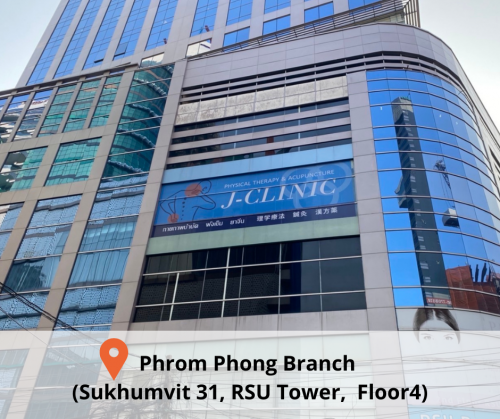
From BTS Phrom Phong Station, take Exit 5 and walk along Sukhumvit towards Asoke for about 5 minutes. RSU Tower will be on your right. Take the escalator up to Floor 4 and you will see us right in front of you. If you are coming by car, parking is available at RSU Tower and is free up to 2 hours when you are treated at J-CLINIC. - Thonglor Branch (Soi Thonglor 13, Home Place building Basement Level)

Our Thonglor clinic is on the basement level of Home Place Building, at the corner of Sukhumvit Soi 55 and Thonglor Soi 13.
If you are coming by BTS, please take a taxi from BTS Thonglor Station, Exit 3.
If you are coming by car, parking is available at Home Place Building and is free up to 4 hours when you are treated at J-CLINIC. - Ekkamai Branch (Sukhumvit 42, Bangkok Mediplex Floor 3)
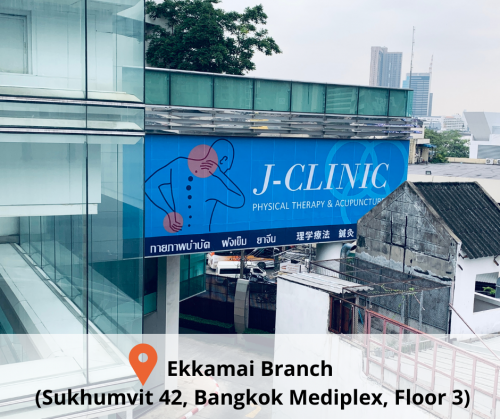
Bangkok Mediplex is a general medical mall on Sukhumvit Soi 42, across from Gateway Ekkamai and directly connected to BTS Ekkamai Station. J-CLINIC Ekkamai branch will be on the 3rd floor of Mediplex.
If you come from BTS Ekkamai Station, go through exit 2. It connects directly to Bangkok Mediplex. Take the escalator up to the 3rd floor and you will see our clinic on your right.

